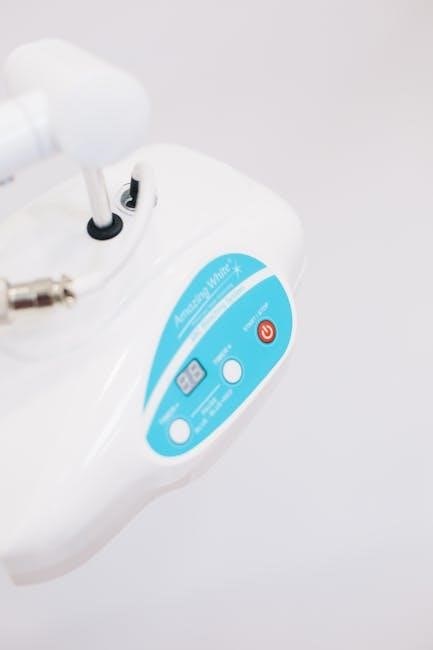A Medical Power of Attorney (MPOA) in Virginia is a legal document allowing individuals to appoint an agent to make medical decisions if they become incapacitated․
What is a Medical Power of Attorney?
A Medical Power of Attorney (MPOA) is a legal document that allows individuals to designate an agent to make medical decisions on their behalf if they become incapacitated․ In Virginia, this document falls under the category of advance directives, enabling individuals to plan for future medical care when they may no longer be able to communicate their wishes․ The MPOA is specifically tailored for health care decisions, distinguishing it from broader powers of attorney․ It typically comes into effect when the principal is unable to make decisions due to illness, injury, or other incapacitating conditions․ The agent’s authority is defined by the document and may include decisions on treatments, procedures, and other medical matters․ In Virginia, specific legal requirements, such as notarization or witnessing, must be met to ensure the MPOA’s validity․ This document ensures that the principal’s health care preferences are respected and carried out by a trusted agent․
Importance of Having an MPOA
Holding a Medical Power of Attorney (MPOA) is crucial for ensuring your health care wishes are honored if you become unable to communicate․ It provides clarity and peace of mind for both you and your loved ones․ Without an MPOA, decision-making authority may fall to family members or court-appointed individuals, potentially leading to disputes or choices that do not align with your preferences․ An MPOA ensures that a trusted agent carries out your medical directives, avoiding unnecessary legal complications․ It also guarantees that you retain control over your medical decisions, even when incapacitated․ In Virginia, having an MPOA aligns with legal standards, such as the Advance Medical Directive, and offers a proactive approach to medical planning․ This document is invaluable for safeguarding your autonomy and providing emotional relief to your family during challenging times․

Creating a Medical Power of Attorney in Virginia
To create an MPOA in Virginia, obtain the form, complete it with your details, choose an agent, and sign it in the presence of a notary or two witnesses․
Requirements for Creating an MPOA
To create a valid MPOA in Virginia, the document must be in writing and signed by the principal․ The signature must be acknowledged by a notary public or witnessed by two individuals․ The principal must have the mental capacity to understand the document’s purpose․ The MPOA is governed by Virginia Code §§ 54․1-2981 to 54․1-2992, ensuring compliance with state laws․ The document becomes effective immediately unless specified otherwise and remains durable, continuing even if the principal becomes incapacitated․ Proper execution ensures the agent’s authority to make medical decisions on behalf of the principal when necessary․
How to Choose the Right Agent
Choosing the right agent for a Medical Power of Attorney (MPOA) in Virginia is a critical decision․ The agent should be someone you trust implicitly to make medical decisions aligned with your wishes․ They must be at least 18 years old and capable of understanding the responsibilities involved․ Ideally, the agent should be familiar with your medical history, values, and preferences․ It is important to select someone who can communicate effectively with healthcare providers and make decisions under pressure․ Consider appointing alternate agents in case the primary agent is unavailable․ Discuss your wishes openly with the chosen agent to ensure they are willing and able to act in your best interest․ Their ability to carry out your directives faithfully is paramount to the effectiveness of the MPOA․
Authority and Scope of the Agent
The agent has the authority to make medical decisions, consent to treatments, and access medical records based on the principal’s wishes when they are incapacitated․
Medical Decision-Making Powers
The agent appointed through a Medical Power of Attorney in Virginia has the authority to make a wide range of medical decisions on behalf of the principal․ This includes consenting to or refusing medical treatments, surgeries, and medications, as well as accessing the principal’s medical records to make informed choices․ The agent can also make decisions regarding life-sustaining treatments, such as ventilators or feeding tubes, based on the principal’s wishes․ Importantly, the agent must act in accordance with the principal’s advance directives if they are provided․ If the principal’s preferences are unknown, the agent is expected to make decisions in their best interest․ The scope of these powers is outlined in the Virginia Code, ensuring the agent acts within legal and ethical boundaries while representing the principal’s health care preferences․

Virginia Laws Governing MPOA
Virginia’s Medical Power of Attorney is governed by the Virginia Code, specifically sections 54․1-2981 to 54․1-2992, ensuring compliance with legal standards for agent authority and principal protections․
Virginia Code and Legal Requirements
The Virginia Code, specifically sections 54․1-2981 to 54․1-2992, governs the creation and execution of a Medical Power of Attorney (MPOA)․ The document must be signed by the principal in the presence of a notary public or two witnesses․ Virginia law requires clear language indicating the principal’s intent for the MPOA to remain in effect even if they become incapacitated, making it a durable power of attorney․ The appointed agent must act in accordance with the principal’s expressed wishes and best interests․ The Virginia Health Care Decisions Act further outlines the procedures and limitations for granting such authority, ensuring the principal’s autonomy is respected․

Advantages of Having an MPOA
An MPOA ensures your medical wishes are respected, avoids family conflicts, and provides clarity for decision-making, giving you peace of mind and protecting your autonomy․
Benefits for Principals and Agents
An MPOA provides peace of mind for principals, ensuring their medical wishes are honored․ It prevents legal disputes and family conflicts over decision-making authority․ Principals retain control over their care, while agents benefit from clear guidelines, reducing stress․ The document protects agents from liability when acting in good faith, fostering trust and confidence․ Both parties gain legal clarity, ensuring decisions align with the principal’s values and preferences․ This arrangement promotes cooperation and respect, offering a structured approach to healthcare decision-making․ Principals and agents alike are safeguarded by the legal framework, ensuring the principal’s autonomy is maintained even during incapacitation․
Accessing the MPOA Form in Virginia
The Virginia MPOA form can be accessed online through legal document builders or state resources․ It is essential to complete it with a notary public present․
How and Where to Obtain the Form
To obtain the Medical Power of Attorney (MPOA) form in Virginia, individuals can access it through various legal resources․ Online legal document builders provide downloadable templates tailored to Virginia’s specific requirements․ Additionally, the form can be found on official state websites or through legal aid services․ It is essential to ensure the form complies with Virginia Code §§ 54․1-2981 to 54․1-2992․ Once downloaded, the form must be completed with the principal’s details and the agent’s information․ Witnesses and a notary public are typically required to finalize the document․ After completion, it is advisable to keep copies for the principal, the designated agent, and healthcare providers to ensure accessibility when needed․

Comparison with Other Power of Attorney Types
A Medical Power of Attorney (MPOA) in Virginia differs from other types of Power of Attorney (POA) in its specific focus on healthcare decisions․ Unlike a General Durable Power of Attorney, which covers financial and personal matters, an MPOA solely addresses medical care․ It is also distinct from a Limited Power of Attorney, as it is tailored for healthcare scenarios and becomes effective only when the principal is incapacitated․ While other POA types may cover a broader range of decisions, the MPOA is narrowly defined to ensure clarity in medical situations․ This distinction is crucial for Virginia residents, as it allows for precise control over healthcare choices without affecting other areas of personal or financial management․
